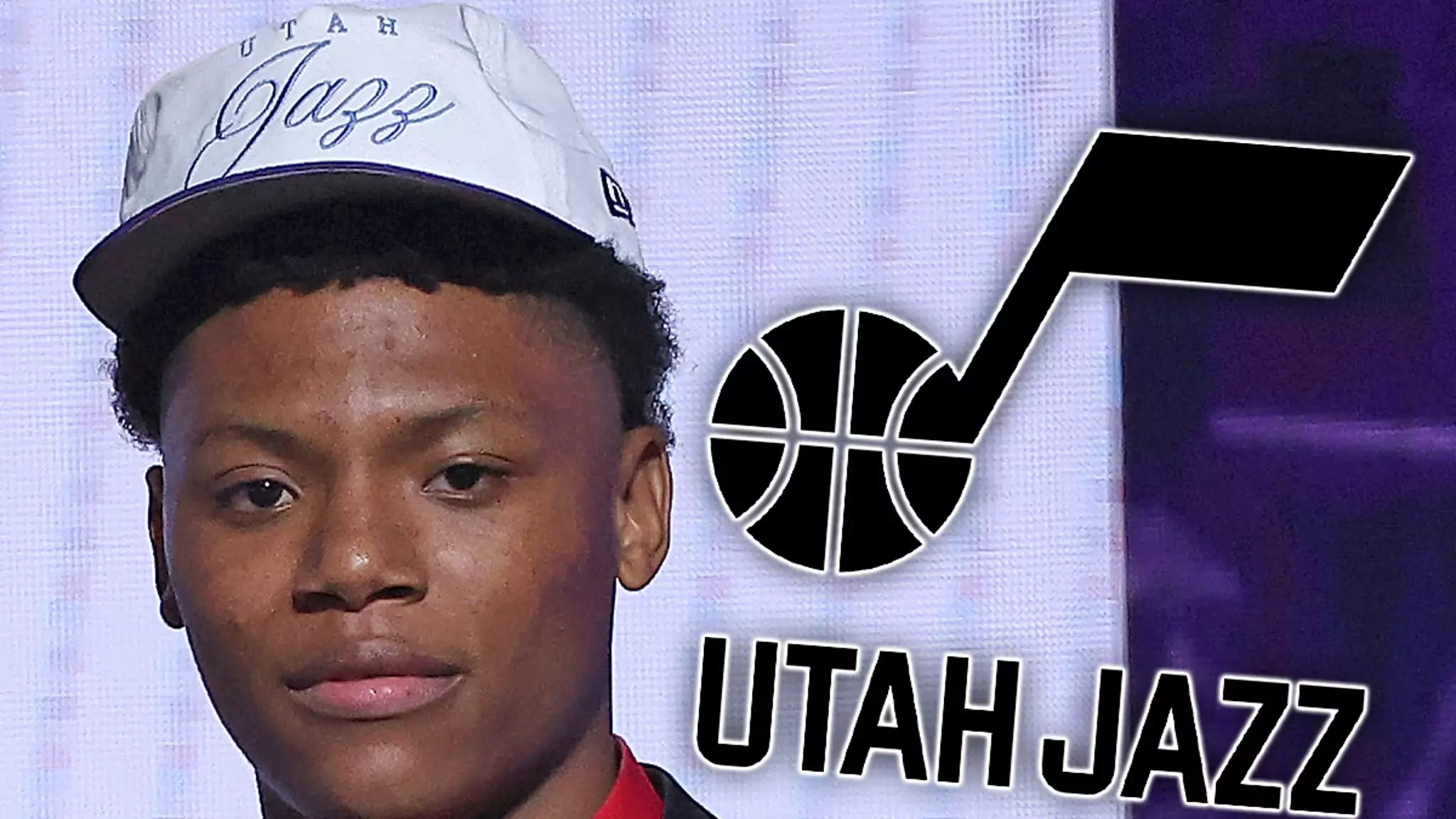Ace Bailey, a promising talent hailing from Rutgers, found himself in an intriguing predicament during the NBA draft. Despite harboring reservations about joining the Utah Jazz—the team with the least stellar record in the Western Conference from the previous season—Bailey has chosen to view his selection as a “blessing.” This astute perspective reveals a mental resilience that is crucial for any athlete transitioning to the professional arena, especially when faced with the realities of a team in rebuilding mode.
Reading Between the Lines
From the moment Bailey was drafted fifth overall, speculation about his true feelings ran rampant. The body language he exhibited during the selection process hinted at a disconnection from the Jazz, leading many to ponder whether he truly felt excited about this new chapter. However, in the press conference that followed, Bailey asserted that he wasn’t perturbed by public sentiment. “I can control what I can control,” he stated, indicating that he understands the nature of an athlete’s career: focus on improving your game, regardless of external opinions. His approach signals a maturity that transcends typical rookie anxieties.
A Challenging Position
Bailey’s decision not to work out for other teams also raised eyebrows. As the only U.S.-based prospect to forgo pre-draft workouts, it showcased his confidence—or could it be perceived as a lack of interest in those potential opportunities? Many expected him to be allured by teams like the Brooklyn Nets or the New Orleans Pelicans, but his steadfastness in not working out as a means to focus on “working on basketball” suggests he had a calculated plan. This selective engagement reflects a young player taking ownership of his own narrative, despite uncertainty about the destination.
Organizational Support vs. Player Sentiment
What Bailey’s situation illustrates is a dynamic often overlooked in professional sports: the relationship between a player’s desires and the franchise’s objectives. Team president Austin Ainge’s affirmative comments on Bailey’s potential signal that the Jazz are overlooking their recent struggles in favor of a broader vision that includes building around budding stars. For Bailey to live up to that vision, he must reconcile his initial hesitations toward the franchise with a commitment to contribute to rebuilding efforts.
Overcoming Adversity in the Spotlight
If Bailey is indeed grappling with mixed emotions, he may find solace in the age-old narrative of athletes turning adversity into triumph. Consider the journeys of legendary players who have faced rejection, relocation, or unfavorable circumstances only to excel. Instead of viewing his situation as a setback, Bailey has an opportunity to craft his legacy in a city that might one day celebrate him as a transformative figure for the franchise. The challenge isn’t merely to perform on the court but to elevate the entire organization—something that could ultimately redefine his career.
Bailey’s journey is a compelling reminder that the path to greatness often winds through unexpected territory. Despite his initial misgivings, embracing this opportunity with an open mind could not only change the narrative surrounding his career but also catalyze the transformation of the Jazz.

